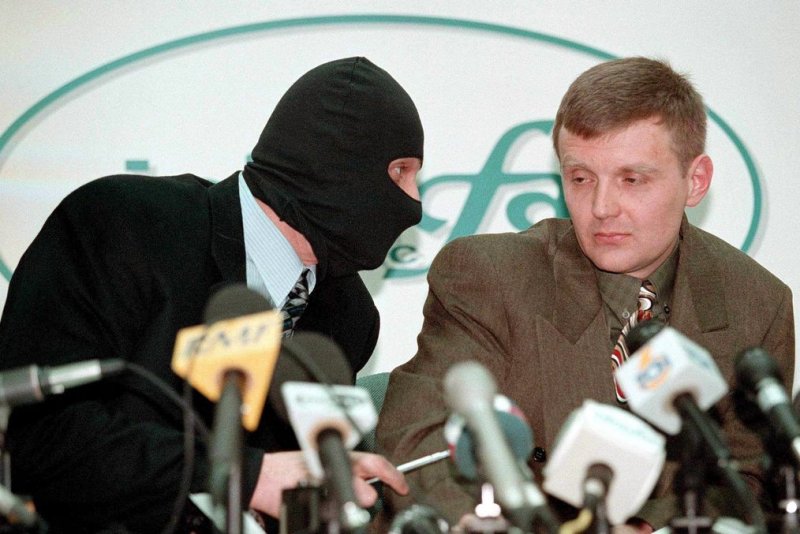1 of 2 | Alexander Litvinenko, a former Russian Federal Security Service colonel, is pictured with a masked colleague during a press conference in November 1998. File Photo by Sergei Kaptilkin/EPA
June 4 (UPI) -- One of two Russian men accused of poisoning former spy Alexander Litvinenko in 2006 has died from COVID-19.
Dmitry Kovtun, 56, died Saturday in a Moscow hospital after contracting the illness, according to the Russian state media agency TASS.
His death was first revealed by the other suspect in the case, Andrei Lugovoi, a member of the lower house of Russian parliament who had served with Kovtun in the KGB.
"Sad news came today that as a result of a serious illness associated with a coronavirus infection, my close and faithful friend Dmitry Kovtun died suddenly," Lugovoi said in a statement to the Russian social media website V Kontakte.
"For us, this is an irreplaceable and heavy loss. From the bottom of my heart, I express my deepest condolences to all relatives and friends of Dima. Sleep well, dear friend! We will never forget you."
Litvinenko worked for Russia's Federal Security Service, the successor of the Soviet Union's KGB spy agency, before he defected to Britain in 2000 and started serving as a consultant for Britain's MI6 intelligence agency.
The former spy had become a harsh critic of the Kremlin after attempting and failing to root out corruption within the FSB and the Russian government.
Litvinenko died after drinking tea that had been poisoned with polonium 210 at a hotel in London and British investigators found the radioactive isotope in Kovtun and Lugovoi's rooms and on Logovoi's seat during his flight from Moscow.
British investigators have sought to extradite the two men and have concluded that Litvinenko was likely assassinated with approval of Russian President Vladimir Putin, which Russia's Foreign Ministry has rejected.
The case had soured relations between the British and Russian governments well before Russia's invasion of Ukraine on Feb. 24 hampered them further.
Kovtun's former German wife, Inna Hohne, told detectives during the Litvinenko inquiry that he was a heavy drinker who shifted between badly paid jobs and dreamed of being a porn star, The Guardian reported.
After the assassination of Litvinenko, the West has blamed other poisonings of Kremlin critics on Russia including that of opposition leader Alexei Navalny in 2020.
Navalny has been imprisoned in Russia since January 2021 and the Anti-Corruption Foundation, a Moscow nonprofit he established to combat corruption in Russia, was branded an extremist organization by a Moscow court in June 2021 and officially liquidated.















